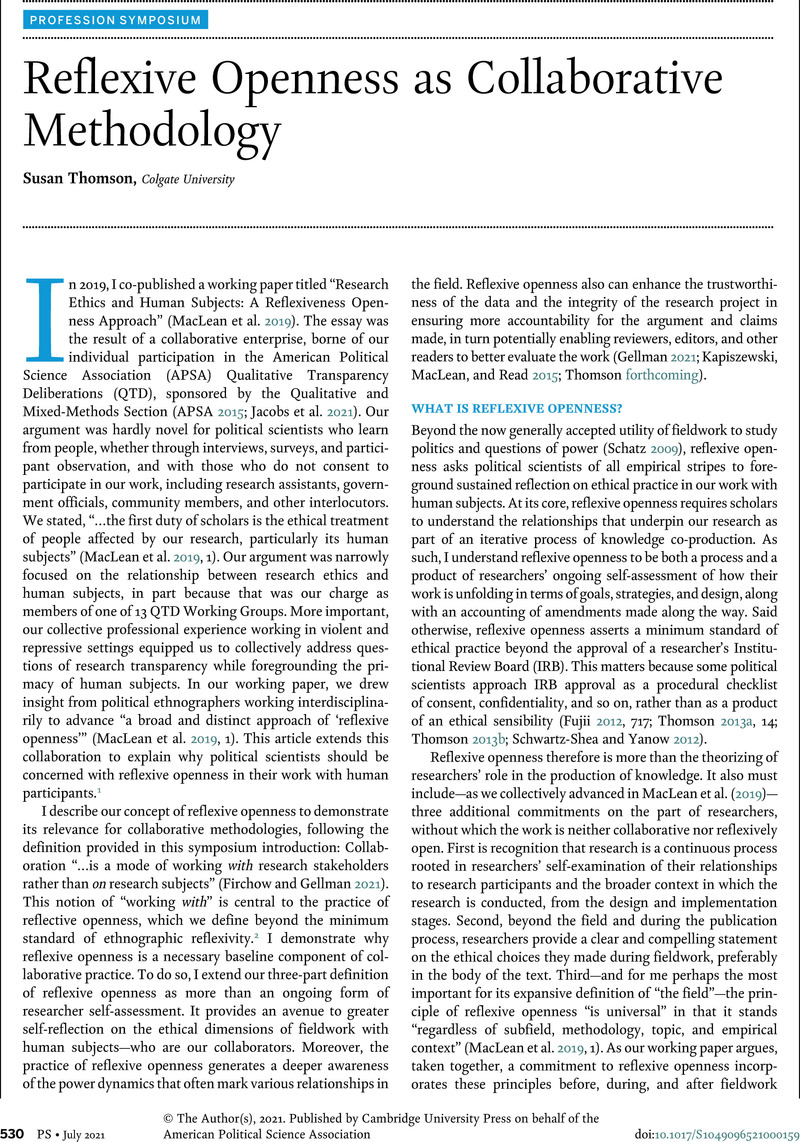Crossref Citations
This article has been cited by the following publications. This list is generated based on data provided by Crossref.
Flores, Thomas Edward
2021.
Everyday Democracy Indicators? How the Study of Democracy Illuminates the Value (and Challenges) of Collaborative Methodologies.
PS: Political Science & Politics,
Vol. 54,
Issue. 3,
p.
565.
Mitra, Ankushi
Kline, Curtis
and
Bautista-Chavez, Angie M.
2024.
Civically engaged research in political science: a methodological guide.
Politics, Groups, and Identities,
p.
1.
Mitra, Ankushi
McNew-Birren, Jill
and
Nickels, Ashley E.
2024.
Who counts in civically engaged research? Rethinking expertise and authority in politics.
Politics, Groups, and Identities,
p.
1.
Udani, Adriano
and
Torres Wedding, Maria
2025.
The Case for accompaniment in struggles against the state: designing ethically sensible and response research partnerships in political science.
Politics, Groups, and Identities,
p.
1.



